Space
Sign up for our newsletter
We summarize the week's scientific breakthroughs every Thursday.
-
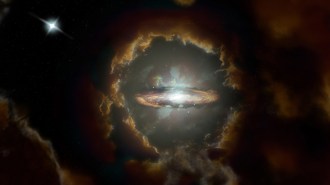 Astronomy
AstronomyThe oldest disk galaxy yet found formed more than 12 billion years ago
A spinning disk galaxy similar to the Milky Way formed just 1.5 billion years after the Big Bang, much earlier than astronomers thought was possible.
-
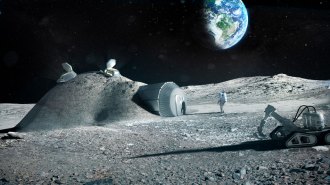 Chemistry
ChemistryAstronauts may be able to make cement using their own pee
Lunar dust and a compound found in urine could be used to build future dwellings on the moon, a new study finds.
-
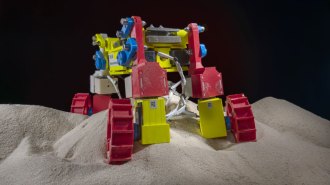 Tech
TechWiggling wheels could keep future rovers trucking in loose lunar soil
A rover that wriggles through soil could climb hills on the moon or Mars that are too steep for a simple wheeled bot.
-
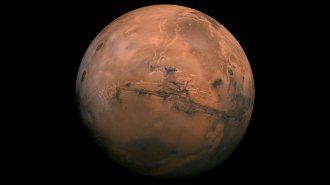 Space
SpaceSalty water might exist on Mars, but it’s probably too cold for life
Salty liquids may last for several hours on the Red Planet but be too chilly for any known microorganisms from Earth to survive, simulations suggest.
-
 Space
SpaceHow tiny ‘dead’ galaxies get their groove back and make stars again
Computer simulations explain how puny galaxies can sustain star formation: Gas falls into them and billions of years later begins to create new stars.
By Ken Croswell -
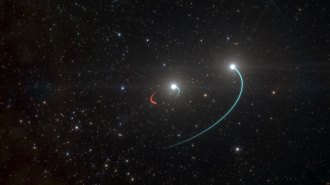 Space
SpaceThe closest black hole to Earth may have been spotted 1,000 light-years away
What appears to be the closest black hole to the solar system shares orbits with two massive stars, a new study finds.
-
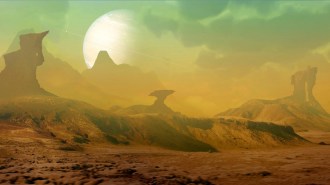 Planetary Science
Planetary SciencePlanets with hydrogen-rich atmospheres could harbor life
Lab experiments show yeast and E. coli survive and reproduce in hydrogen gas, suggesting new environments to seek alien life.
-
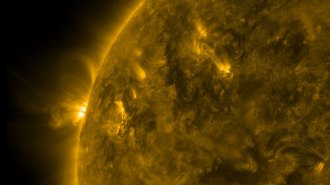 Astronomy
AstronomyThe sun is less magnetically active than similar stars, and we don’t know why
Why our star seems so different from its stellar kin is a mystery.
-
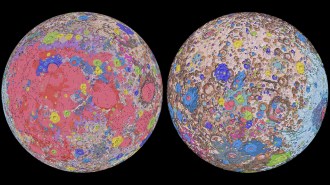 Planetary Science
Planetary ScienceThis is the most comprehensive map of the moon’s geology yet
Cartographers merged Apollo-era maps and modern lunar observations to into a new geologic map of the moon.
-
 Astronomy
AstronomyA century ago, astronomy’s Great Debate foreshadowed today’s view of the universe
The argument between Harlow Shapley and Heber Curtis 100 years ago was ultimately settled by Edwin Hubble.
-
 Astronomy
AstronomyHigh-speed gas collisions prevent star birth in galaxies’ bars
The spiral galaxy NGC 1300 makes few if any stars in its bright bar. Simulations suggest gas clouds colliding at high speed stunt star formation.
By Ken Croswell -
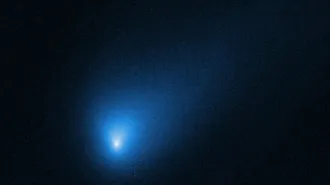 Space
SpaceInterstellar comet Borisov has an unexpected amount of carbon monoxide
The second known visitor from outside the solar system has three times as much CO relative to H2O than any comet seen in the inner solar system.